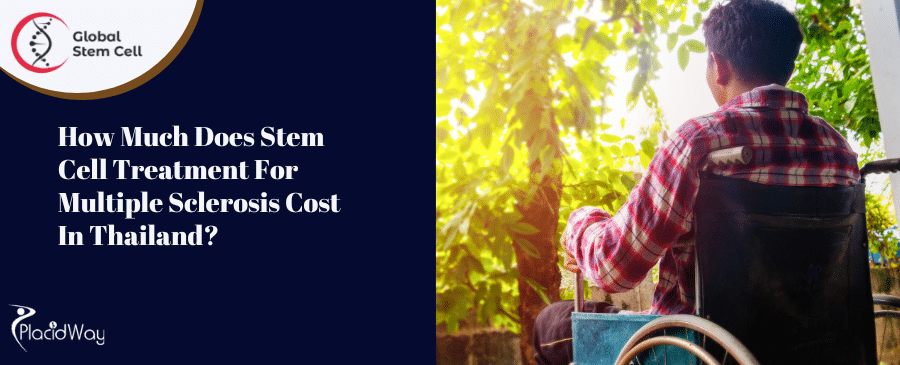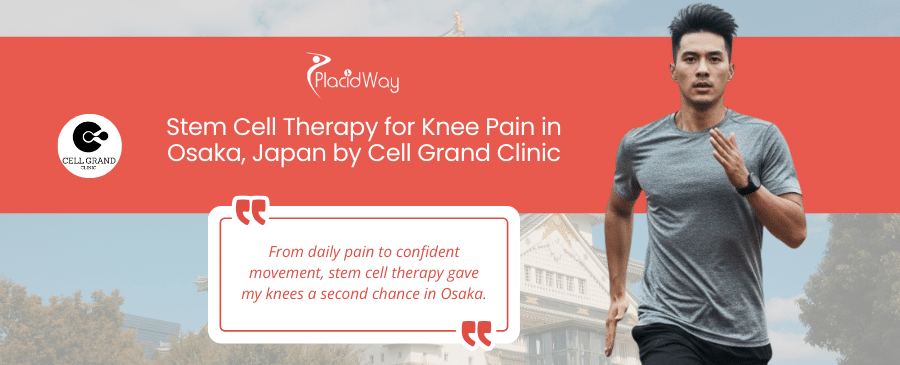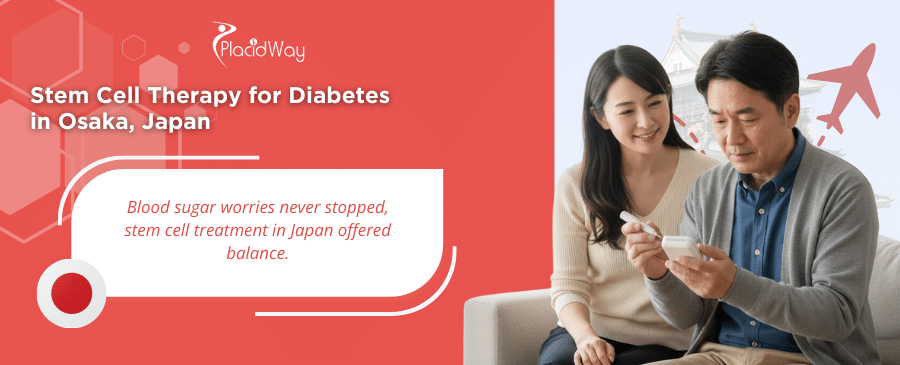Facing a diagnosis of Multiple Sclerosis (MS) can feel overwhelming, and exploring treatment options is a critical step in managing the condition. One of the most promising advancements in modern medicine is stem cell treatment, a regenerative therapy that offers hope for slowing disease progression and improving quality of life. For many, the high cost of this treatment in Western countries is a significant barrier. This has led a growing number of patients to look abroad, with Thailand emerging as a leading destination for high-quality, affordable medical care. If you’re wondering about the cost of stem cell treatment for multiple sclerosis in Thailand, you’ve come to the right place. The price is considerably lower than in the US or Europe, making it an accessible option for many without compromising on the quality of care.
Thailand has built a strong reputation for medical tourism, combining internationally accredited hospitals, experienced specialists, and state-of-the-art technology with a culture of hospitality. Clinics in cities like Bangkok and Phuket are equipped to provide advanced regenerative therapies, including various types of stem cell therapy for multiple sclerosis. This guide is designed to answer all your questions, from the detailed breakdown of costs and what treatment packages include to the safety protocols and the science behind the therapy. We’ll explore what makes Thailand a top choice, what you can expect during your journey, and how to choose the right clinic for your needs, giving you the clarity to make an informed decision about your health.
What is the exact cost of stem cell therapy for MS in Thailand?
The price for stem cell treatment for multiple sclerosis is not a one-size-fits-all figure. It is influenced by a highly personalized approach to medicine. When you consult with a Thai clinic, they will conduct a thorough evaluation of your medical history, the current stage of your MS, and your overall health. This assessment determines the specifics of your treatment protocol, which directly impacts the cost.
For instance, a patient with relapsing-remitting MS might require a different treatment intensity than someone with primary progressive MS. The number of stem cell infusions, the type of stem cells used (e.g., mesenchymal stem cells from umbilical cord tissue), and the duration of the supportive therapies all play a role in the final price. Most reputable clinics provide a detailed cost estimate after an initial consultation, ensuring transparency before you commit to the treatment.
What factors influence the cost of treatment?
Understanding the variables that make up the total cost is essential for financial planning. Here’s a more detailed breakdown:
- Clinic Reputation and Accreditation: Internationally accredited hospitals (e.g., with JCI certification) may have higher costs due to their adherence to stringent global standards of safety and quality.
- Treatment Protocol: The core of the cost is the treatment itself. This includes:
- Number of Stem Cells: More severe conditions may require a higher dosage of stem cells, which increases the cost.
- Number of Infusions: The treatment plan might involve multiple infusions over several days or weeks.
- Type of Stem Cells: Mesenchymal Stem Cells (MSCs) are commonly used for MS. The source (umbilical cord, adipose tissue) can also affect the price.
- In-Patient vs. Out-Patient Care: The cost will differ if your treatment requires a hospital stay versus being treated as an outpatient.
- All-Inclusive Packages: Many clinics offer packages that bundle services for international patients, which can be more cost-effective.
Here is a table illustrating how different factors can affect the price:
| Factor | Description | Cost Impact |
|---|---|---|
| Clinic Tier | Top-tier, JCI-accredited vs. standard local clinic. | High |
| Stem Cell Dosage | Low dosage (e.g., 50 million cells) vs. high dosage (e.g., 200 million cells). | High |
| Package Inclusions | Treatment only vs. all-inclusive (accommodation, transfers, etc.). | Medium |
What is typically included in a stem cell treatment package in Thailand?
Clinics in Thailand that cater to international patients understand the need for comprehensive packages that simplify the medical travel process. While the specifics vary, a standard package for MS treatment will almost always cover all medical aspects of the procedure. This ensures that from the moment you arrive, your focus can be on your health and recovery.
Here’s what you can generally expect to be included:
- Medical Services: This is the core of the package, covering all doctors’ fees, lab tests, MRI scans (if needed), the stem cells themselves, and the administration of the treatment.
- Supportive Therapies: To maximize the benefits of stem cell therapy, many packages include physical therapy, occupational therapy, and sometimes nutritional counseling.
- Hospital Stay: If your treatment requires hospitalization, the cost of the room and nursing care is usually included.
- Logistical Support: Many clinics offer assistance with visa applications, airport pickup and drop-off, and local transportation to and from the clinic. Some even have dedicated international patient coordinators.
It’s crucial to ask for a detailed list of what is and isn’t included. Extra costs might include your flight tickets, meals (if not hospitalized), and any tourism activities you wish to undertake.
How does the cost in Thailand compare to the US or UK?
The primary driver for medical tourism is cost savings, and the difference is substantial when it comes to advanced treatments like stem cell therapy. In the US, the cost can be prohibitively expensive, often not covered by insurance because it’s still considered experimental for MS by many regulatory bodies. This leaves patients paying out-of-pocket, with costs easily exceeding $50,000 and sometimes reaching up to $100,000.
In Thailand, the lower cost of living, competitive healthcare market, and government support for medical tourism allow clinics to offer these advanced treatments at a much more affordable rate. This price difference does not reflect a compromise on quality. Many top Thai hospitals are staffed by doctors trained in Western countries and use the same cutting-edge technology and medical protocols.
What are the best clinics for stem cell treatment for MS in Thailand?
While it’s difficult to name one “best” clinic, several centers have established a strong reputation for regenerative medicine. Instead of focusing on a single name, it’s more productive to focus on the qualities that a reputable clinic should possess. Your research should prioritize clinics that are transparent, experienced, and patient-focused.
Key things to look for include:
- Accreditation: Joint Commission International (JCI) accreditation is a gold standard, indicating the hospital meets rigorous international safety and quality benchmarks.
- Doctor’s Expertise: Research the credentials of the medical team. Look for specialists with experience in treating neurological conditions like MS with stem cells.
- Technology and Lab Quality: The clinic should have a modern, in-house or affiliated lab for processing and culturing stem cells to ensure their viability and purity.
- Patient Reviews: Look for detailed reviews and testimonials from previous MS patients. These can provide invaluable insight into the patient experience and treatment outcomes.
Is stem cell therapy for MS in Thailand safe and ethical?
Safety is the number one concern for any medical procedure, especially when traveling abroad. Reputable Thai clinics prioritize patient safety by adhering to strict regulatory guidelines. The stem cells used are thoroughly screened for diseases and genetic abnormalities. The use of mesenchymal stem cells (MSCs) from donated umbilical cords is widely considered safe and ethical, as it does not involve embryonic sources and has a low risk of rejection by the patient’s body.
Furthermore, the procedure itself is minimally invasive, usually involving an intravenous (IV) infusion, similar to a standard drip. The medical teams are highly trained to manage any potential side effects, which are typically minor and temporary, such as fatigue or a mild fever. Always ensure the clinic you choose is transparent about its safety procedures and the source of its stem cells.
What is the treatment process like for an international patient?
Clinics specializing in medical tourism have refined their processes to be as seamless as possible for international patients. Here’s a typical step-by-step journey:
- Initial Consultation: You will start with a remote consultation, where you share your medical records and discuss your condition with a specialist.
- Treatment Plan and Quote: The clinic will provide a personalized treatment plan and a detailed cost breakdown.
- Travel and Accommodation: Once you agree to the plan, the clinic’s international patient department can often assist with visa letters, hotel bookings, and travel logistics.
- Arrival and Pre-Treatment: Upon arrival in Thailand, you’ll be transferred to your accommodation and then to the clinic for a comprehensive in-person evaluation.
- Treatment Period: The treatment itself may span from a few days to a couple of weeks, involving stem cell infusions and other supportive therapies.
- Recovery and Follow-Up: After the treatment, you’ll have a final consultation and be given a detailed plan for your continued recovery back home.
At the end of your journey, you’ll leave not just with a completed treatment but with a clear path for the months ahead. The clinic will typically stay in touch for follow-up, monitoring your progress remotely.
Ready to explore your options for high-quality, affordable stem cell treatment for Multiple Sclerosis? Explore PlacidWay’s solutions for medical tourism and connect with leading healthcare providers in Thailand today. Take the first step towards a better quality of life.






